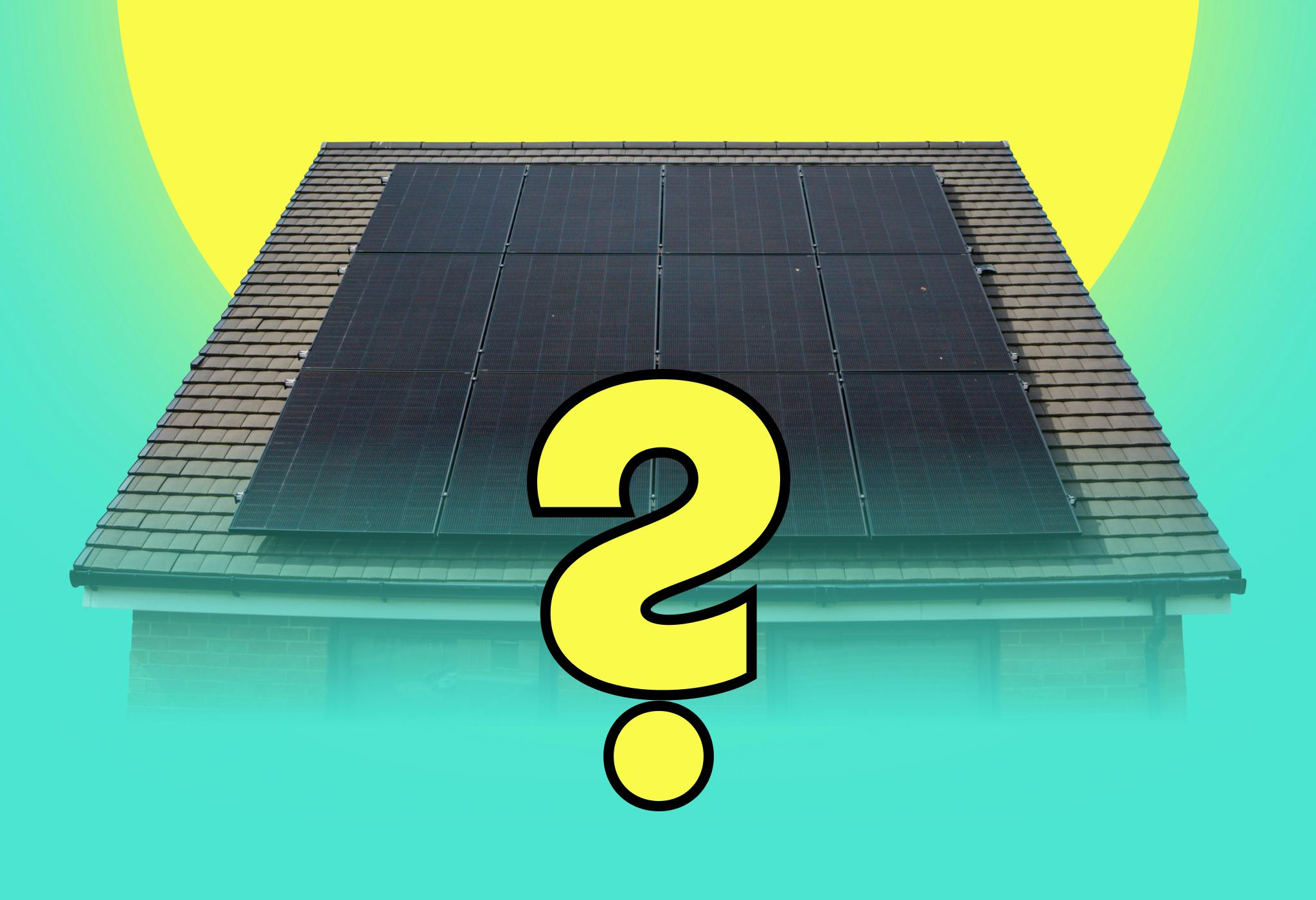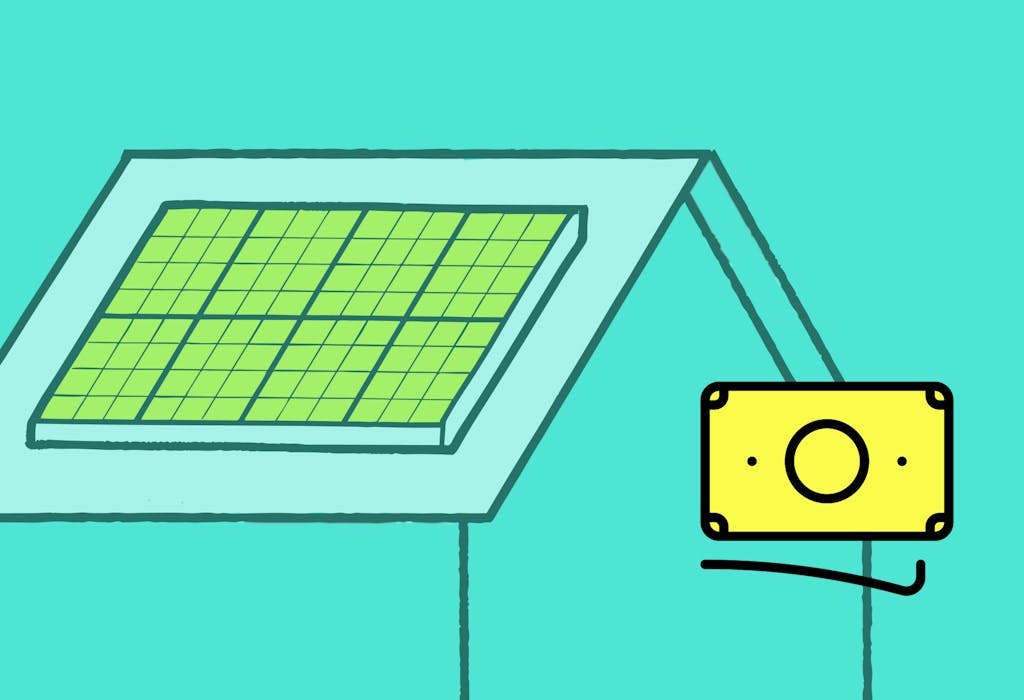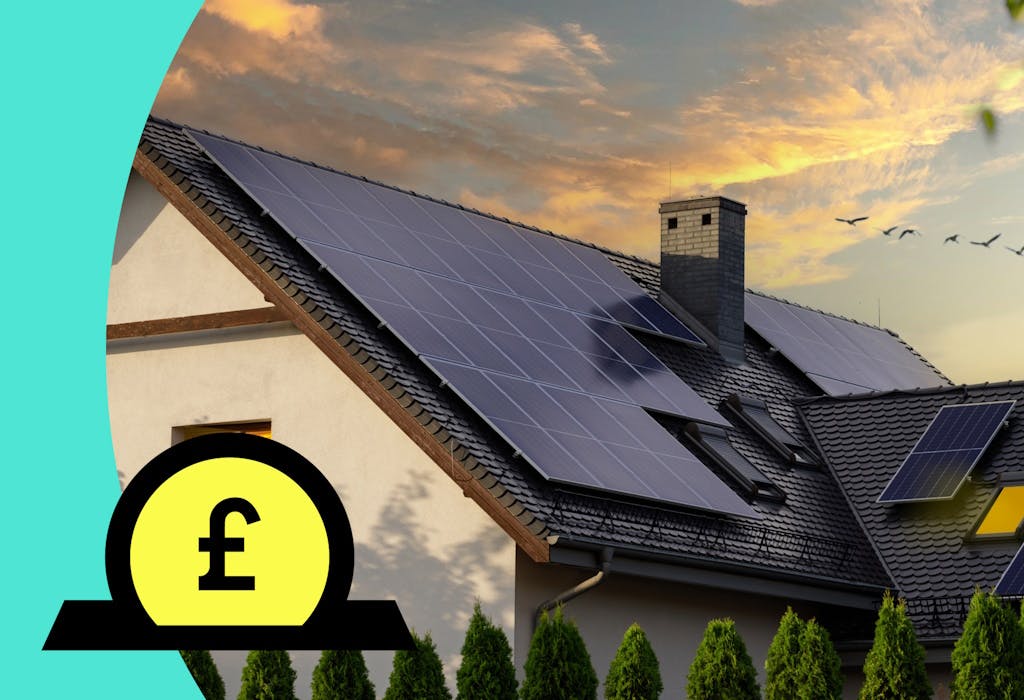- Solar advice hub
- Costs
- Solar panel leases: are they worth it?
Solar panel leases: are they worth it?
Understand the key benefits and drawbacks of a solar panel lease, what to watch out for, and how it differs from a roof lease


Why you can trust our content
We know that the solar industry is full of misinformation, but we only use reliable sources, including:
- Our experienced solar experts, installers and system designers
- Our own database of solar & battery system designs
- Authoritative bodies like MCS and the UK government




Calculate savings
What kind of home do you live in?
Calculate savings
What kind of home do you live in?
Solar panel leases: at a glance
If you’re looking to avoid the high upfront cost of switching to solar, you may find a solar panel lease appealing.
Instead of buying your equipment, you’ll pay a monthly fee that still allows you to cut your energy bills – but with the major downside that you won’t own your system, which can lead to all kinds of issues.
In this guide, we’ll run through the problems that can arise, the different types of solar panel lease, and the most important factors to consider before you sign a contract.
Sunsave Plus is the UK’s first solar subscription – not a solar panel lease – which comes with lots of benefits that we’ll run through below.
To find out how much you could save with a solar & battery system, enter a few details below and we’ll provide an estimate.
Find out how much you can save
What kind of home do you live in?
What is a solar panel lease?
Also known as a ‘solar plan’, a solar panel lease involves hiring solar panels from a company for a set period of time, most often in the form of a consumer hire agreement.
Similar to most car leases, you’ll pay a monthly fee for the length of the contract, which is generally 20 or 25 years.
In return, the firm leasing you the panels will usually install them on your roof with no upfront cost, and may provide some maintenance support.
You can use or sell all the electricity the panels produce while pocketing the returns, but the leasing company will retain ownership of them.
At the end of your contract, you can extend the lease, which would allow you to keep your maintenance support, or ask the company to arrange for your system to be removed.
Alternatively, if you have a hire purchase agreement (rather than a consumer hire agreement), you can buy the system for a small fee, and potentially lose the support – but keep cutting your bills with solar-generated electricity.
A solar panel lease is different to a solar roof lease – also known as a rent-a-roof scheme – which can come with a whole host of other issues, like requiring the rights to your rooftop for up to 25 years.
Solar panel leases can help households to avoid the high upfront cost of solar panels, which is appealing – but there are other ways to achieve this, like solar subscriptions.
Do you own the system?
The main disadvantage of getting a solar panel lease or hire agreement is that you’ll never own the system - and even in the case of a hire purchase agreement, you won’t achieve system ownership until the end of the contract.
You’ll have panels on your roof that help save and earn you money, but legally they’ll belong to the leasing company. This can present issues for mortgage providers, which we explore further down.
And if for whatever reason you end up breaching your contract, the company has the right to repossess your system.

Things to consider before signing a solar panel lease
If you’re thinking of getting a solar panel lease, there are a few important points to discuss with any prospective installers, which we’ve outlined below.
As with any contract, it’s also crucial that you read it carefully before signing, as leasing companies can include troublesome clauses – and your only warning may be in the paperwork.
Going solar with no upfront cost is an attractive proposition that firms can push while they sneak in punitive restrictions, so do your due diligence to avoid being caught out.
For more information, read our article explaining the best questions to ask before installing solar.
1. Are the monthly payments fixed?
It’s always a good idea to question whether your payments will be fixed.
Check the contract to see if your payments will increase with inflation – and if you’re still unsure, ask the company directly whether you’ll pay the same amount in month one as you will in the final months of the contract.
Some firms try to push the risk of inflation onto the customer, rather than shoulder it themselves.
If they do, it can have a large impact on your bills. For example, if you pay £100 per month and that increases by 2.5% each year, by year 25 your monthly payment will be £185.
So even if you initially achieve net savings with a solar panel lease, inflationary increases could mean you eventually end up worse off.
With our solar subscription, payments stay absolutely fixed for the full term, regardless of what happens to inflation – which means no sneaky price rises.
2. Is there a Land Registry restriction?
After you enter into a leasing agreement, the company may place a charge (also known as a ‘notice’) on your property’s Land Registry’s title.
This indicates that, since the firm owns the panels on your roof, it has a legal interest in your property.
This Land Registry notice will be visible to prospective mortgage lenders and may create issues with lending on your property - making it more difficult for you to remortgage or sell.
With Sunsave Plus, we don’t place any notices on your property’s title so, provided your mortgage provider is happy for you to make general home renovations, you should have no issues.
And if you ever want to move home during your subscription, you can either pass on your contract to the new homebuyer (subject to status), or include the value of your solar & battery system in the sale price of your home and make a full early repayment.
3. Is maintenance included and what does it cover?
Whether you pay upfront or over a longer period of time, the cost of a solar & battery system is high, so you should have peace of mind that it’ll perform to its full potential.
Some technical experts in the industry estimate that a solar & battery system in the UK may need three maintenance call-outs across a 20-year period – one for the panels, one for the battery, and one for the inverter.
You should also check exactly what’s included in your maintenance provision. Make sure the company commits to regularly monitoring your system, and to identifying and fixing any issues.
This will save you having to track the panels’ output yourself – which is a difficult and time-consuming process – and means you won’t have to find a local solar engineer and pay them a one-off fee every time you think something may be wrong.
Ideally, your plan should also contain downtime cover, so you can get compensated if your system stops working for a while. You don’t want to be making monthly payments for solar panels that aren’t generating electricity.
Equipment upgrades are also a must when it comes to long-term solar contracts, since your battery and inverter will usually need replacing after around 10-12 years.
Every Sunsave Plus system is protected by the Sunsave Guarantee, which includes 24/7 monitoring and maintenance, free replacement parts, and downtime cover. Your system will also be insured by Aviva against damage, fire, and theft.
Is a solar panel lease worth it?
Solar panel leases offer households one way to go solar without paying a large amount upfront, which makes solar accessible to more people.
However, you won’t own the panels during your lease, which could potentially cause problems if you ever decide to remortgage or sell your home.
Mortgage providers sometimes refuse to lend against homes with leased panels, while buyers may insist that you pay off the lease before they move forward.
If you’re looking to go solar with no upfront cost, own your system from day one, make completely fixed monthly payments, and get comprehensive maintenance cover in return, consider the UK’s first solar subscription, Sunsave Plus.
To find out how much you could save, enter a few details below and we’ll provide an estimate.
Find out how much you can save
What kind of home do you live in?

Written byJosh Jackman
Josh has written about the rapid rise of home solar for the past six years. His data-driven work has been featured in United Nations and World Health Organisation documents, as well as publications including The Eco Experts, Financial Times, The Independent, The Telegraph, The Times, and The Sun. Josh has also been interviewed as a renewables expert on BBC One’s Rip-Off Britain, ITV1’s Tonight show, and BBC Radio 4 and 5.



